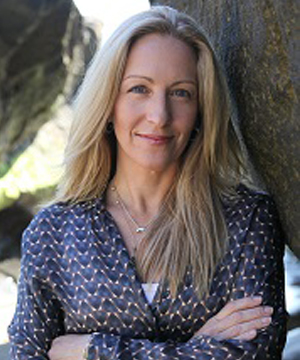
Kelly Gates
Associate Professor of Communication and Science Studies

- Profile
Profile
Professor Gates’ research focuses on the critical analysis of digital media technologies. Her main emphasis has been the politics and social implications of computerization, and particularly the automation of surveillance, in the United States from the mid-twentieth century to the present.
Her 2011 book, Our Biometric Future: Facial Recognition Technology and the Culture of Surveillance, explores the effort underway since the 1960s to teach computers to see the human face. The book examines the social construction of automated facial recognition and automated facial expression analysis, focusing on the conceptual and cultural frameworks that are used to think about these technologies, and on the constellations of interests, institutions and social practices that are shaping their development. Gates argues that, despite persistent claims that computers have no social bias, in fact there is no such thing as a computer vision program that can “see” faces in a culturally neutral way. It is especially important to recognize this, because the face has been a special object of attention in the organization of visual practices and the development of visual media technologies, and technologies designed for representing and analyzing the face have played a central role in defining and redefining what it means to be human.
Professor Gates is currently working on a new project that investigates the emerging professional field of video forensics and its attendant technologies in order to examine the ways in which new visual imaging and archiving technologies are being incorporated into, and transforming, modern investigatory and evidentiary practices. She is especially interested in the emerging forms that police work is taking in the digital economy, including the cultural labor that the police perform in their roles as surveillance workers and media analysts.
At UCSD, Professor Gates teaches courses on the history of communication research, the Internet and society, the cultural history of photography and visual culture, and surveillance and the risk society.